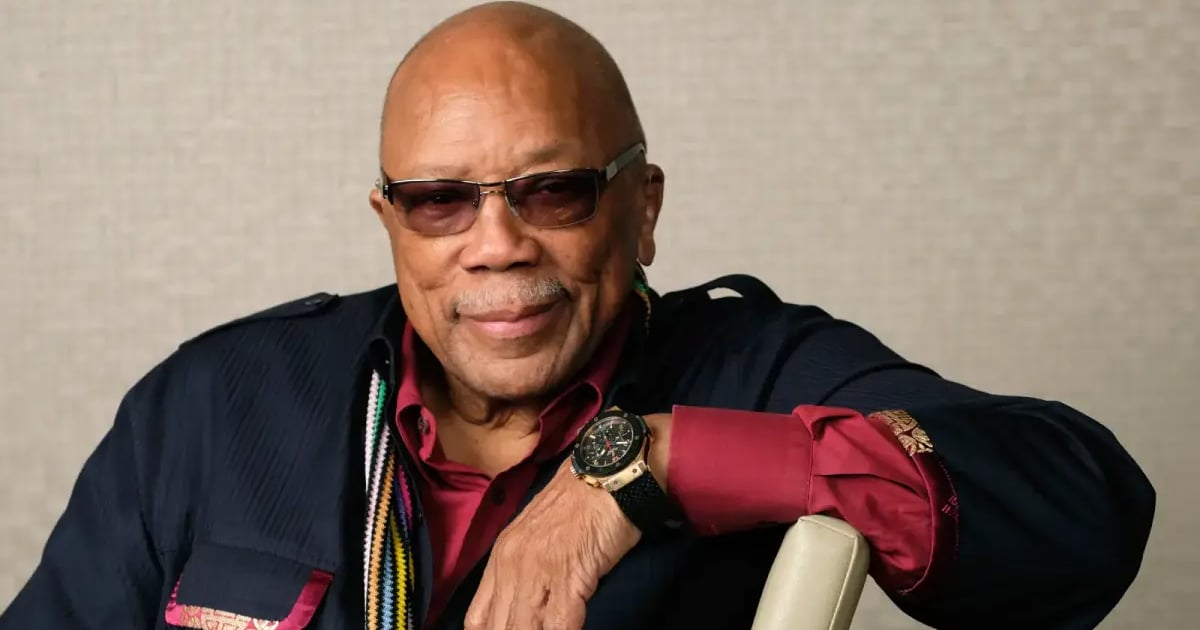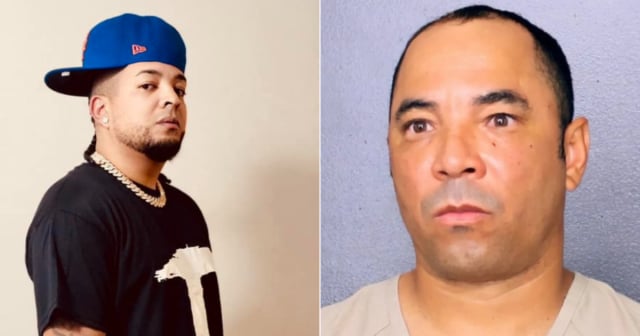
The music world mourns the loss of Quincy Jones, a true giant of the industry who, in his 91 years, revolutionized the musical landscape.
The legendary composer, producer, and arranger passed away on Sunday night at his home in Bel Air, California, surrounded by his loved ones, according to CNN.
The Jones family issued a heartfelt statement in which they expressed their grief and celebrated his life, filled with love and unparalleled artistic contributions. "There will never be another like him. His heart will beat for eternity through his music and boundless love," his family shared.
An erudite of the musical staff, Quincy had a deep understanding of the evolution of Cuban music, of which he remarked that, alongside Brazilian music, it was among the best in the world.
The music of Brazil and Cuba "is the best," said the legendary American trumpeter, composer, bandleader, arranger, and producer Quincy, highlighting the influence of African roots.
"I've been traveling to Brazil almost every year for 54 years. Oh my God! The music that is created there, along with that of Cuba, are the best. Lyricism and African rhythms. With the same 12 notes for the past 500 years," Jones said in an interview with the Spanish newspaper El País in July 2011.
Musical manager of Cuban pianist Alfredo Rodríguez
In 2006, with 27 Grammys to his name, after having produced some of the greatest albums of all time and having turned 80, Jones made his debut as a manager for young musicians. This decision came after he witnessed a performance by the young Cuban pianist Alfredo Rodríguez Jr.
The idea of becoming a music manager came to her in 2006 during the Montreux Jazz Festival in Switzerland, after witnessing the performance of an innovative Cuban pianist who had no manager and even less a recording contract, the New York Times reported in 2015.
Jones was impressed with the Cuban and asked if he would like to work with him. The offer led the pianist to stay during a trip he took to Mexico in 2009, crossing the border at Laredo, Texas, with only the sweater he was wearing and a suitcase filled with musical compositions.
The vice president of Quincy Jones Productions, Adam Fell, explained to the outlet that Jones brought Alfredito to Los Angeles, providing him with housing for two years while the young musician began to tour and work on an album. Additionally, he encouraged the pianist to delve into his Latin roots during his debut in 2012.
Recalling those moments, the Cuban pianist said that “the best advice he gave me (Quincy Jones) was to be myself.”
A pioneer of many talents
Quincy Jones was a man of talent and determination who excelled as a musician, conductor, record executive, and tireless advocate for civil rights.
Born in Chicago in 1933, he grew up in a challenging environment that did not deter him from developing a deep love for music from an early age. His career began to take shape in Seattle, where he met the young Ray Charles, with whom he would maintain a lifelong friendship.
Under the guidance of his mentor, trumpeter Clark Terry, and the tutelage of greats like Lionel Hampton, Jones began to make his mark in jazz, first as a performer and then as a brilliant arranger.
His talent for musical arrangements led him to collaborate with iconic figures such as Count Basie, Sarah Vaughan, and Duke Ellington. However, his influence would extend across various genres, making him a versatile and visionary musician who recognized no boundaries.
Breaking barriers in the music industry
In 1961, Quincy Jones made history by becoming the director of artists and repertoire at Mercury Records, and three years later, he became the first African American to hold a vice president position at a white-owned record label.
During this period, he produced hits like "It’s My Party" by Leslie Gore and collaborated with artists such as Frank Sinatra and Peggy Lee. With Sinatra, Jones developed a strong friendship and an artistic relationship that redefined the sound of pop music in the United States.
In the 1960s, Jones ventured into film and television, composing soundtracks that propelled him to fame, including those for In the Heat of the Night and In Cold Blood.
It was also during these years that he suffered a brain aneurysm that endangered his life. Despite this serious health issue, Jones continued working and, in his words, “witnessed his own funeral,” where colleagues like Sarah Vaughan and Sidney Poitier stood by him.
The success of "Thriller" and its social impact
Perhaps one of the most significant moments in Jones's career came in 1982, when he produced Michael Jackson's iconic album Thriller, a work that not only broke sales records but also redefined global pop music.
Three years later, Jones brought together dozens of stars for the charity project We Are the World, which aimed to raise funds to combat famine in Africa. This charitable song became a symbol of unity and solidarity, reinforcing Jones's image as a man dedicated to social causes.
Exploring new horizons and leaving a legacy in popular culture.
In his relentless pursuit of innovation, Jones also made his mark on television by producing the popular series The Fresh Prince of Bel-Air, which propelled Will Smith to stardom.
In the publishing world, he founded the cultural magazine Vibe in 1993, extending its influence in the musical and cultural landscape of the United States.
Throughout his life, Quincy Jones was married three times and was the father of seven children, including actress Rashida Jones. He was a multifaceted individual who not only dedicated himself to music but also tirelessly sought to influence and shape the culture of his time.
A transformative creativity
Until his final years, Jones maintained a vibrant creative activity. In 2014, he produced the documentary Keep on Keepin' On, dedicated to his mentor Clark Terry.
In his 2022 book, 12 Notes on Life and Creativity, he reflected on the importance of creativity in his life, describing it as "one of the most beautiful gifts we possess, with the power to transform pain into something more than a singular feeling."
Quincy Jones leaves behind an immense legacy, a life marked by art, social commitment, and an influence that will transcend generations.
Their music will continue to resonate, and their innovative spirit will remain an inspiration for all those who dream of breaking barriers and making art a vehicle for change.
Quincy Jones and his opinion on Donald Trump
In February 2018, the octogenarian musician stirred controversy after an interview he gave to the Vulture newspaper was published, in which he claimed that he "used to date Ivanka Trump," the daughter of U.S. President Donald Trump.
"I had the most beautiful legs I have ever seen in my life," he expressed, and then he exclaimed, "Wrong father, though."
In the interview, Jones was very critical of the president, accusing him of exacerbating racial tensions in the United States. He also called him a "son of a b***h" and said that those who listened to him and believed were "uneducated peasants."
"Trump is simply telling them what they want to hear. I used to hang out with him. He's a son of a b..., mentally limited, megalomaniac, narcissist. I can't stand him," he said.
What do you think?
COMMENTFiled under:






